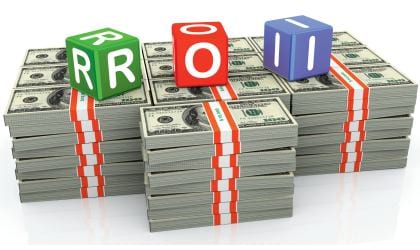
Google search has always been about content and links. The Panda update focused on the quality of the content, and the Penguin update focused on the quality of incoming links. Hummingbird allowed for more intuitive crawling, meaning that Google could better sift through and decode clutter. The Pigeon update ostensibly converted the Local algorithm so that it is based on the same signals as the organic listings: content and links.
Content Reigns Supreme
In: Content that sings
Out: Keyword density
Yes, it’s a jungle out there, but content is still the Lion King. Google favors content that portrays your practice as unique. Your website content tells your story. Regurgitation of canned procedure facts doesn’t resonate with Google—or with patients, for that matter. Google wants to know who you are, what you do, and how well you do it, and prospective patients want to know the same. Thanks to Hummingbird, Google is able to interpret content and understand the meaning, even if keywords are not strung together.
Here’s an example of content that will pass muster in the post-Google “Zoo” world: “Dr X’s breast augmentation procedure helps create a natural result, which enhances the contour and shape of your body. Her surgical skill and 15 years of cosmetic surgery experience allow her to provide a beautiful outcome. She understands that each patient is unique, as is each procedure. The breast implant size and shape, as well as the surgical plan, are selected based on your specific goals and expectations.”
Are You Linked In?
In: Meaningful links from respected, related organizations and companies
Out: Linking for links’ sake
Links count, too, but only if they are relevant. Cheap links are like the search kingdom’s jackals—skulking, opportunistic scavengers that take what they can get with no thought to quality, just quantity. The easiest way to weed out jackals is to focus on those links that also send you visitors. If another site sees fit to send traffic to your site, then your site must be a pretty good resource. These types of links—like meaningful business relationships—may take some time to cultivate. You can’t buy them.
If you are a member of a professional society, you typically get a profile. Make sure yours is fleshed out, up to date, and replete with links to your websites. These types of sites are highly credible to Google, and when they send traffic to your site, they can add to the impression that your practice is worthy, too.
Examples include:
Key vendors are also untapped linking resources. Consider beefing up your profile (which includes links to your home page) on these sites if you use the products. Some potential sites include:
There are many other online resources that you may have at your disposal. These include charities you support and local business groups.
Content and links are among the most important contributing factors to your online presence. Review sites and social media are also important, but the way the search engines process these components is evolving. For now, keep your eye on your content and links to avoid being penalized by any further “Zoo” updates.




